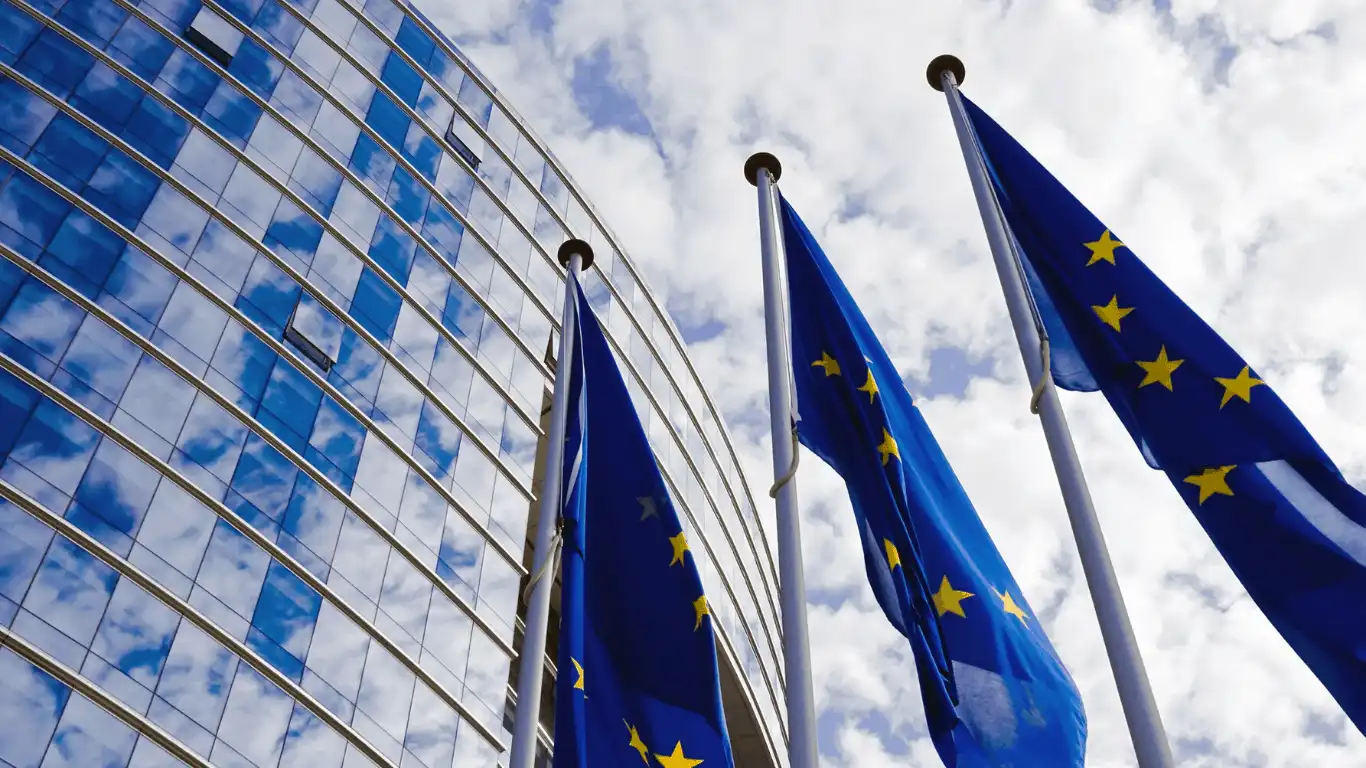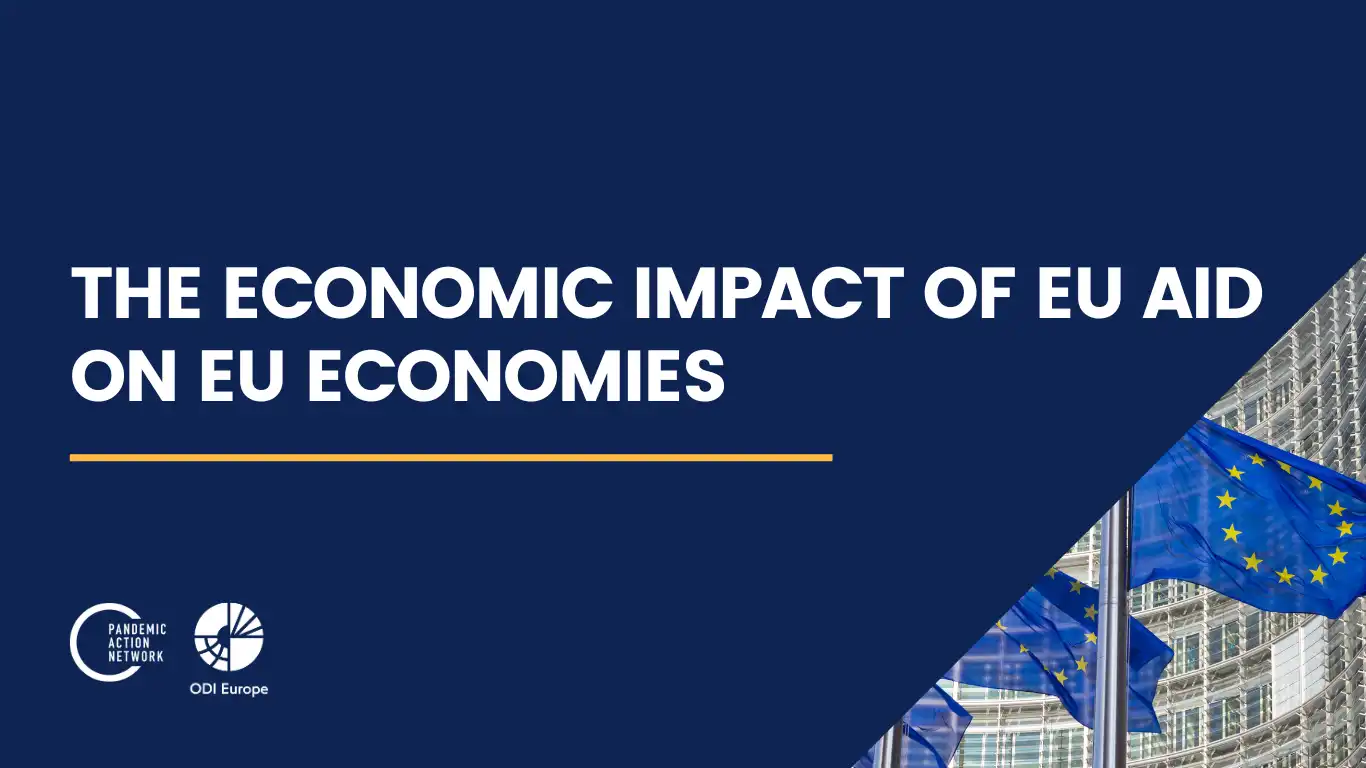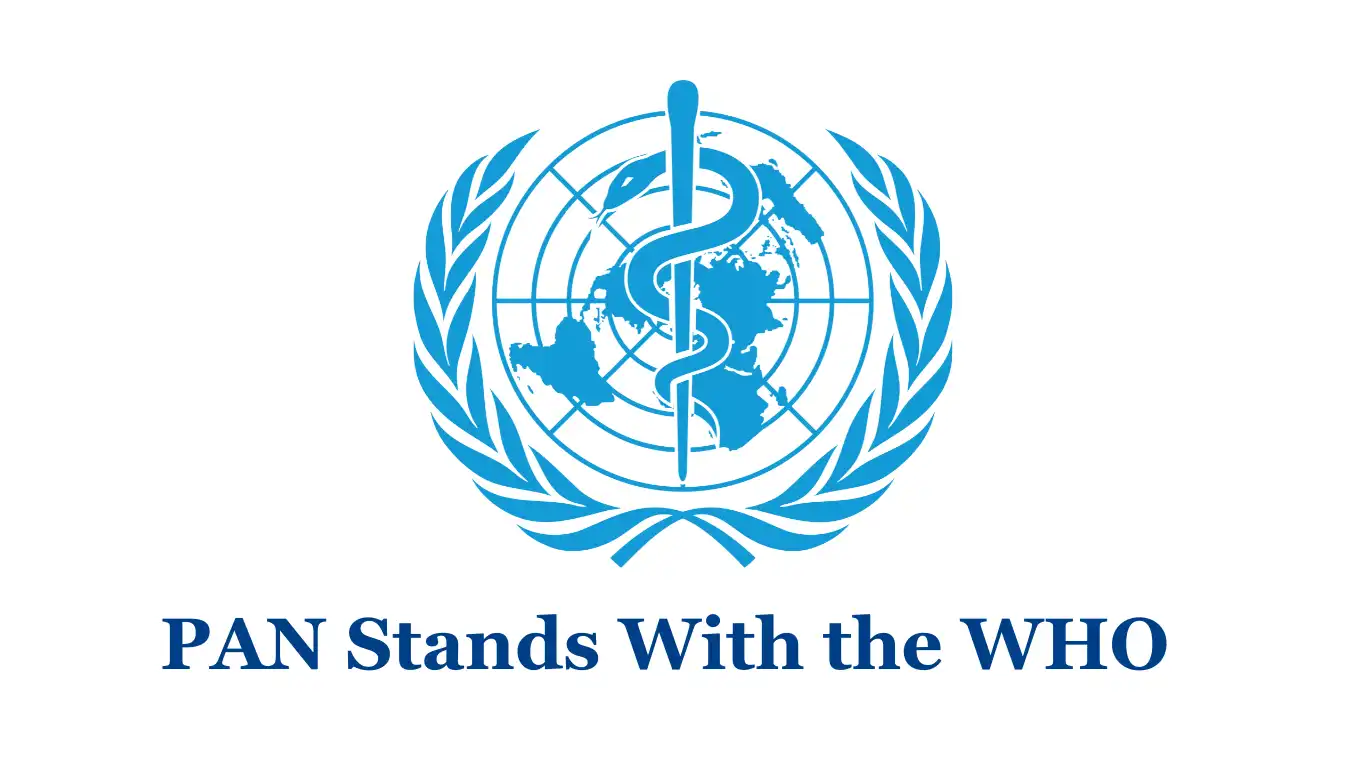This week the European Commission put forward a proposal for a major recovery plan for the EU. The EU decided to reboot its 7-year budget proposal in light of the COVID19 crisis. The overall Multiannual Financial Framework covers the funding period from 2021-2027 and was boosted by an additional €715 billion to €1.85 trillion – including a €750 billion ‘Next Generation EU’ recovery fund – gave us all a glimmer of hope for tomorrow.
At the Pandemic Action Network, we are focused on securing long-term solutions to resolving this COVID19 crisis so that future pandemics can be prevented.
Here are the 10 things we’ll be watching in the EU’s newly proposed recovery plan:
- A new standalone programme for pandemic prevention and preparedness – The Commission is proposing to create a new EU4Health programme, with a budget of €9.4 billion to invest in prevention and crisis preparedness and help deliver well-performing and resilient public health systems. Although it represents only a small proportion of the overall plan, having a pot of money dedicated to strengthening health security and prepare for future health crises is a major step forward.
- A new Resilience and Crisis Response budget: The EU4Health is part of a new resilience and crisis response budget line alongside security and defense, under a renamed ‘Heading 5: Resilience, Security and Defence’ (previously ‘Security and Defense’). The Resilience and Crisis Response budget sees a big boost with an additional €12.8 billion, totalling €14 billion (the majority of which will come from the Next Generation EU funding). Also, under this budget line, RescEU, the Union’s Civil Protection Mechanism, gets an extra €1.9 billion, to €3.1 billion, to better prepare for and respond to future crises.
- A Commitment to international cooperation and common solutions for all – The EU is committed to support the global response to Covid-19, including by ensuring universal and affordable access to treatment, testing and any future vaccine. The plan proposes an additional €6.78 billion for the Neighbourhood, Development and International Cooperation Instrument (NDCI), to €86 billion, and another €5 billion for humanitarian assistance, reaching €14.8 billion.
- Creativity in finding new resources. The Commission will use its strong credit rating (and temporarily raise the EU’s own resources ceilings) to exceptionally borrow up to €750 billion in low interest loans at long maturities on the market. It will then channel borrowed funds (partly recycled as grants) to regions and sectors most vulnerable to COVID-19 in Europe and for pandemic preparedness and prevention. In addition, in order to make funds available as soon as possible, the Commission proposes to amend the current budget (covering 2014-2020) to make an additional €11.5 billion available already this year.
- European medicines agency– The Commission will propose to strengthen the European Medicines Agency in monitoring production and supply of essential medicines in the EU to avoid shortages.
- European Centre for Disease Prevention and Control (ECDC): It will also give a stronger role for the European Centre for Disease Prevention and Control (ECDC) in coordinating surveillance, preparedness and response to health crises.
- More flexible emergency reserves for better crisis management. The Commission is proposing to create EU-level reserves of essential supplies and equipment to be mobilised in response to major emergencies and to strengthen its emergency financing tools (such as the EU Solidarity Fund, the European Globalisation Adjustment Fund, and the Solidarity and Emergency Aid Reserve) and make them more flexible to enable a rapid response to crises both within and outside the EU. Together, these instruments would provide for up to EUR 21 billion in additional emergency financing.
- Better and simplified regulation – The Commission will set up the ‘Fit-for-Future Platform’ involving all stakeholders to simplify and modernise EU legislation to alleviate unnecessary regulatory burden. The Commission will also present a Communication on Better Regulation later this year to ensure law and policy making are based on robust evidence and assessments.
- Investment in research and innovation. The Commission is proposing to reinforce ‘Horizon Europe’ by €7.8 billion, to €94.4 billion, to scale up vital research in health, resilience and the green and digital transitions.
- Fight Infodemics. The Commission plans to address disinformation challenges linked to the pandemic and build resilience for the future.
It’s now down to the European Parliament and the 27 Member States to carry on negotiations and reach an agreement on the long-term budget to equip the EU with the right tools to fight this pandemic and prepare for the next.
These initiatives are a great show of leadership from the EU to develop a resilience budget that can prepare us for future crises. PAN will be working with partners to make sure this proposal is protected, and even strengthened, in the negotiations between Member States and the European Parliament. PAN will also work to ensure the same kind of plan is adopted in other countries and at the global level, in particular resilience budgets and standalone mechanisms for pandemic preparedness. In addition, President Von der Leyen announced today that extra funds for international cooperation will be raised at a Global Pledging Summit on 27 June backed by the European Commission, 15 countries so far, and delivered by Global Citizen and partners.
Other countries and organisations should also explore innovative ways to raise funding for the global effort, to ensure the poorest countries can also fight this pandemic and be ready for the next. No-one is safe until everyone is safe
All figures are in 2018 constant prices
Background Information
The Commission is putting forward a two-fold plan totalling €1.85 trillion
- Reinforced long-term EU budget (known as the Multiannual Financial Framework, or ‘MFF’) for 2021-2027 (€1 100 billion)
- ‘Next Generation EU’ to boost the EU budget with new financing raised on the financial markets for 2021-2024 (€750 billion)
The money from Next Generation EU will be invested across three pillars, through €500 billion in grants and €250 billion in loans to Member States.
- Supporting Member States to recover
- Kick-starting the economy and helping private investment
- Learning the lessons from the crisis (including pandemic preparedness and prevention)
Proposed timeline:
- May 27, 2020: Commission proposal for the revised Multiannual Financial Framework 2014-2020 & 2021-2027 and Own Resources Decision + sectoral legislation
- July 1, 2020: German Presidency of the EU begins
- By July 2020: European Council: Political agreement on Multiannual Financial Framework 2014-2020 & 2021-2027 and Own Resources Decision
- By summer 2020: European Parliament’s consultation on Own Resources Decision
- Early autumn 2020: Adoption of the revised Multiannual Financial Framework 2014-2020 + corresponding sectoral legislation
- October 2020: European Council
- December 2020: Adoption of the revised Multiannual Financial Framework 2021-2027 (European Parliament’s consent) Adoption of the Own Resources Decision (Ratification by all Member States in line with their constitutional requirements)
- January 1, 2021: Multiannual Financial Framework 2021-2027 implementation starts
More information here:
- https://ec.europa.eu/commission/presscorner/detail/en/ip_20_940
- Recovery Plan Communication: “Europe’s moment: Repair and Prepare for the Next Generation”
- EU Budget Communication: “The EU budget powering the recovery plan for Europe”



